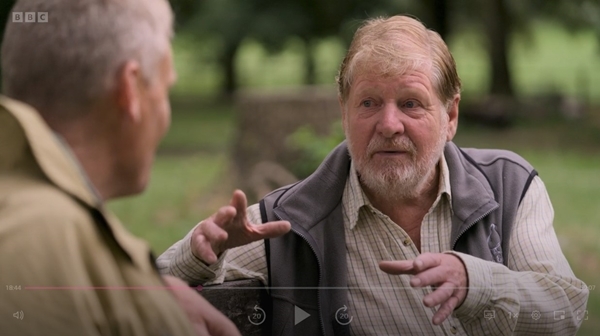
Lesley Griffiths’ statement on the recent episode of BBC Countryfile (the piece starts at 10m 50s) that she would revisit the ban on snares in Wales, if curlew numbers continued to decline, leaves a glimmer of hope for the species.
However, the fact remains that in refusing to accept the amendment to the Agriculture Bill, which would have permitted the use of Humane Cable Restraints (HCRs) under licence, the Welsh Government has put the survival of the curlew and other ground nesting species in doubt. In doing so it has ignored peer reviewed scientific evidence.
Moreover, the Minister’s suggestion that practitioners rely only on alternative methods of control such as shooting and electric fencing shows a lack of appreciation of the practical issues facing those who are desperate to protect the last few breeding curlew and other ground nesting birds. The Minister has admitted that predator control maybe necessary as a last resort and stated that the impact of the ban will be monitored, but with the species predicted to be extinct in Wales by 2033, there is a real risk that it will be it too late.
Decades of research
The evidence for this is based on decades of scientific research underpinning successful projects achieving the recovery of waders and other threatened species. When predator removal was introduced at the Upland Predation Experiment at Otterburn in Northumberland, lapwing, golden plover, curlew, red grouse and meadow pipit went from an average of 23% of pairs fledging young to 64%.
On farmland in the Avon Valley in Hampshire the GWCT Waders for Real project reversed the decline of lapwing, doubling the number of breeding pairs to 120 in just seven years. Through a combination of habitat improvement, winter feeding and predator control, the GWCT’s farm at Loddington Leicestershire increased the breeding songbird population by 102% in eight years. Studies at demonstration projects on Salisbury Plain and Royston in Hertfordshire recorded 28.5-52.3 hares per km2 when predators are controlled, compared to just 7.3-11.9 hares per km2 when they are not.
In all these projects, restraints played an important role especially where vegetation limited the use of alternative methods of predation management. In both Welsh Government policy and the BBC Countryfile programme there is a failure to differentiate between conventional snares and the HCR design developed by GWCT through scientific research. It is regrettable that the BBC chose to cut Dr Mike Swan’s explanation of the difference between the two devices.
Using Humane Cable Restraints
Moreover, the footage of injured animals featured in the programme were likely the result of using old snares set recklessly and not according to the Code of Practice. In contrast, the HCR simply restrains the fox, which is often found unharmed, sitting or sleeping when the device is regularly checked according to legal requirements. Moreover, it is fitted with a release system which allows non-target animals such as deer or badgers to escape unharmed.
As such it has been proven through scientific studies to meet Agreement on International Humane Trapping Standards (AIHTS) guidelines, which are the basis for The Humane Trapping Standards (England and Wales) Regulations 2019. Indeed, as part of scientific studies the device has been used regularly by the Trust for fitting satellite tags to foxes which are then released unharmed.
The Minister’s refusal to include an amendment to the Agriculture Bill, which would have seen the welcome end of conventional snares, but allowed HCRs to be used under licence by trained practitioners is at odds with her commitment to halt the decline of red-listed species. It is to be hoped that she will stick to her pledge and review the decision, which is not in the interests of Welsh wildlife and people and runs counter to the aims of the Well-being of Future Generations (Wales) Act 2015.
The decision to ban HCRs has meant that it will be far more difficult to deliver the objective of the Welsh Government to reverse the decline of curlew. However, GWCT Wales remains committed to leading the way in developing best practice and will continue to work with farmers and land managers to do all it can to save this much loved and globally threatened species.
Please see here for further details on our position >